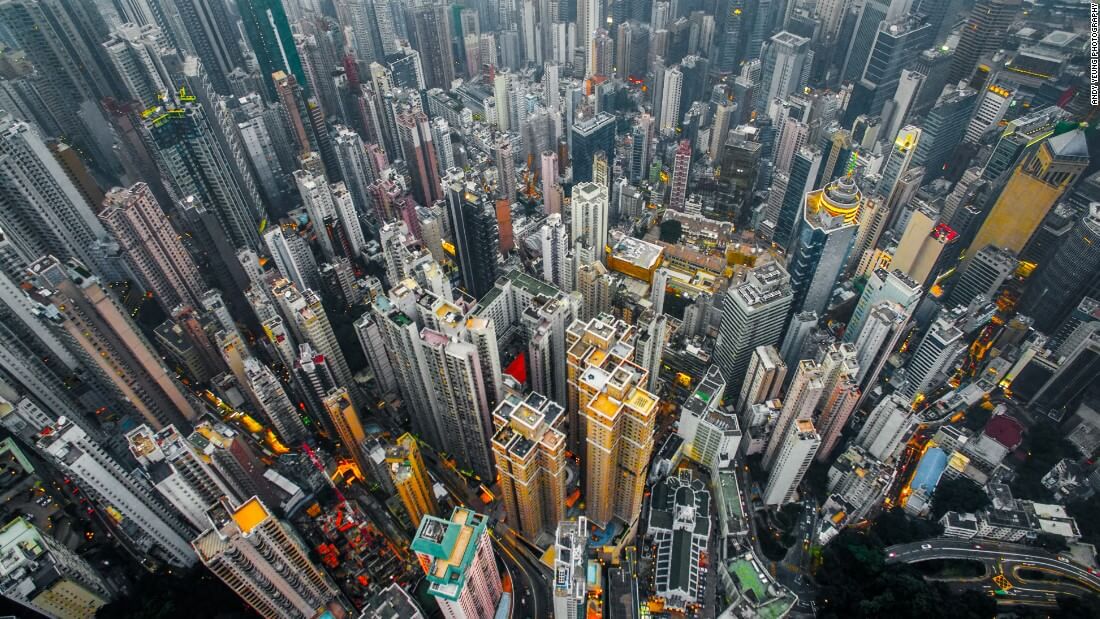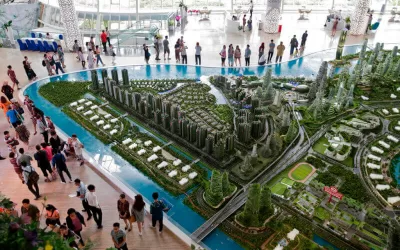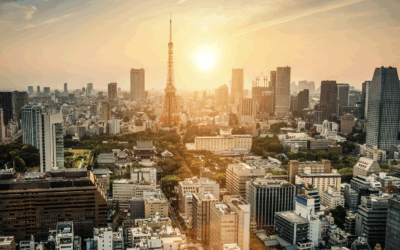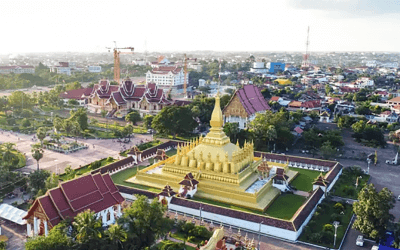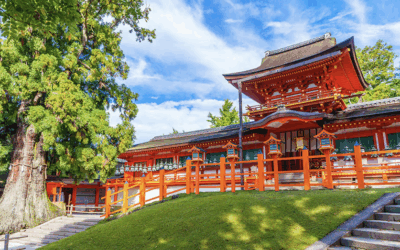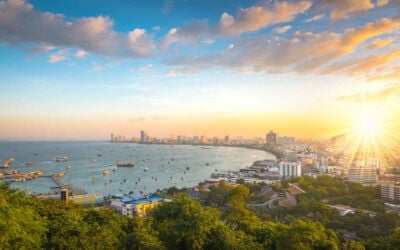Last updated July 12th, 2025.
Asia hosts the most expensive housing markets in the world. In fact, the continent is now home to half of the world’s most costly cities to buy property.
Now, just to be clear, we aren’t saying that an expensive real estate market is a great one to invest in. The contrary is often true. But many of the most expensive cities in Asia have a reputation of stability and safety – especially the region’s financial centers.
Wealthy buyers are choosing to store their assets in the form of property in places like Singapore. This is happening while other types of investment, such as stocks, are near all-time highs with unattractive valuations in lots of countries.
Plenty of these rich offshore real estate owners are Chinese and see the writing on the wall. For the past few years, China has increased capital controls to stop money from flowing out of the country.
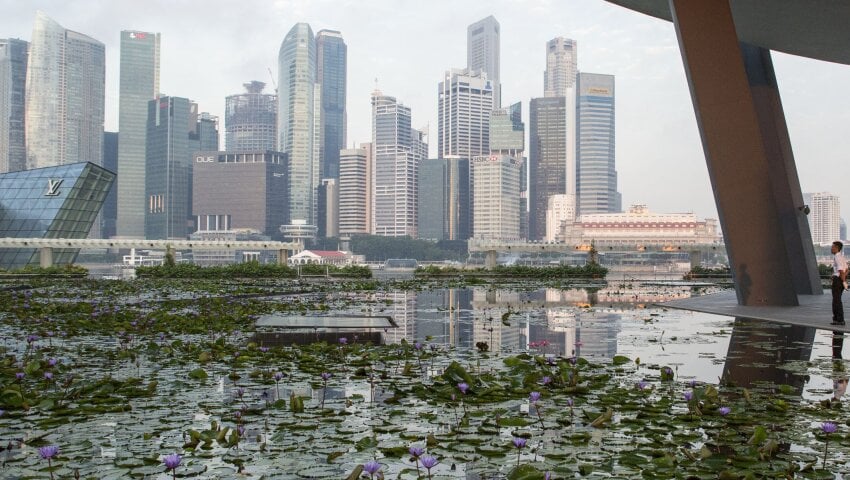
Over the past 50 years, Singapore grew from a malarial swampland into one of the world’s most expensive housing markets.
Granted, having lived under an authoritarian regime until the 1980s, Chinese buyers know why you shouldn’t put all your eggs in one basket better than most. They understand all the benefits of offshore diversification and why not to rely on one nation.
A few places are on our list for that precise reason: the most expensive housing markets in the world are bastions of stability at a time when it’s sorely needed.
These property markets probably won’t see any rapid growth. However, they’ll at least hold their value as long as demand for low-risk, tangible investments is strong.
Asia’s most expensive cities might not be for you if your goal is capital appreciation. Yet there are few better places to store and protect your assets in the long-term though than the places listed below. Some of them even enjoy decent rental yields.
Hong Kong
Retaining its number one spot on our list, Hong Kong isn’t just the most expensive city in Asia. It’s also the most expensive housing market in the world.
The Chinese Special Administrative Region has ranked first for over a decade. Even if prices cool down a bit, it’ll probably remain there for some time as well.
The reasons for Hong Kong’s costly real estate market are numerous. To start, a free economy and its strategic location off China’s coast gives the city an advantage. Not just regarding trade, but also letting it soak up capital flight from the mainland.
Granted, wealthy Chinese will only keep bringing money into Hong Kong as long as they deem it safe and independent. Recent events are forcing some investors reconsider whether the city can stay free from Beijing’s grasp.
For now, Hong Kong still remains financially separate from the mainland – and one of the most capitalist jurisdictions on earth. There’s no reason this will change either.
After all, wealthy Chinese would just start investing elsewhere if they couldn’t do so in Hong Kong.
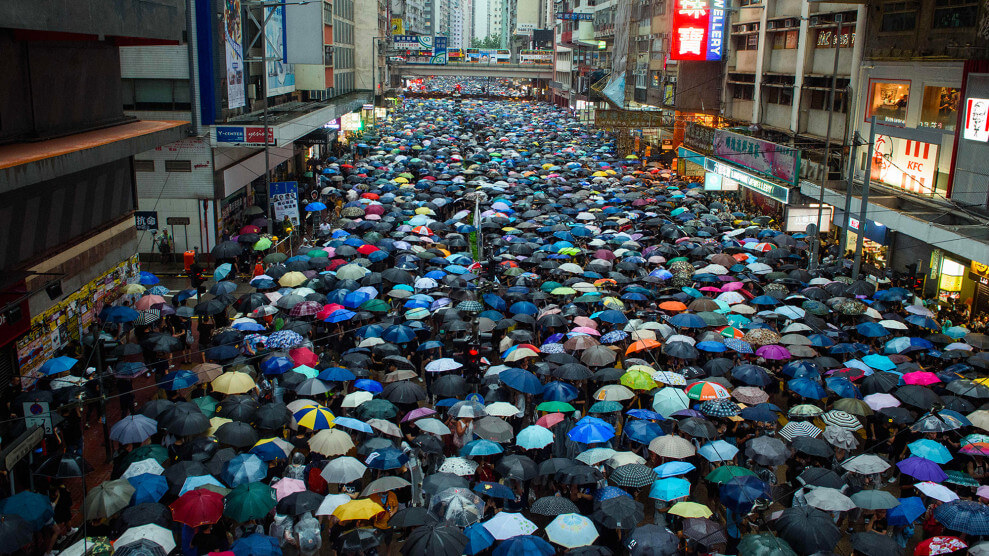
Hong Kong is still the most expensive city to buy a house in the world. Recent events have made investors, realtors, and bankers alike concerned though.
Singapore
Ranking second on our list of the most expensive cities in Asia, Singapore also boasts the fastest-growing economy among the top three.
Singapore’s five-year average GDP growth is above 3%, which isn’t bad for a developed nation. It’s certainly higher compared to the United Kingdom, United States, or Canada.
You might be familiar with Singapore’s transformation into one of the world’s richest cities. Singapore’s economy grew by more than 20,000% (seriously!) between its independence in 1965 and 2025.
Nowadays, one in six Singaporean households have over US$1,000,000 worth of assets. The country scores high on livability rankings too. It’s widely considered to be the most attractive expat destination in Asia.
Putting its rapid development and superb living standards aside, real estate in Singapore is expensive for the same reason as Hong Kong. The Chinese are buying up homes to preserve their wealth.
However, you could easily argue that property prices in Singapore have much more room for growth despite ranking among the most expensive housing markets in the world.
There’s a better case for capital appreciation in Singapore when compared to other places on our list. For example, property values are around half of Hong Kong’s despite Singapore being a wealthier city.
You might want to consider buying property in Singapore if you have a couple million dollars to spare and want to preserve your wealth, yet are also seeking capital growth.
Tokyo
Despite a weaker yen, Tokyo ranks as the third most expensive city in Asia. Seoul looks like it’s about to catch up. Although Japan’s capital still keeps its spot in the top three this year.
But Tokyo’s steep prices are because of completely different reasons than the other two places listed above. Foreigners aren’t causing values to increase here in Japan. It’s sort of a pain to get a visa and buy real estate, thus few expats bother investing. Plus, Chinese generally hate Japan.
Instead, property in Tokyo costs around as much as it should without any foreign investment- fueled boom. Japan has a high standard of living, great quality infrastructure, and a GDP per capita of about US$40,000.
Buying a house or apartment in Tokyo costs as much as in most other world cities with similar standards of living and levels of income. Properties in London, New York, Paris, and Vienna all cost approximately the same as Tokyo on a per square meter basis.
With all that said, Japan’s future doesn’t look good. Declining population growth combined with a terminally-weak economy means Tokyo should see less demand for real estate. Any property “investment” here probably won’t appreciate in value much.
Hong Kong, Singapore, and Tokyo top the list of the world’s most expensive cities to buy a house. A better question is: are they actually worth investing in?
FAQs: Most Expensive Housing Markets
Why is Hong Kong Considered the Most Expensive Housing Market Globally?
Hong Kong has held the title of the world’s most expensive housing market for over a decade due to several factors. Its free economy, strategic location off China’s coast, and role as a gateway for capital flight from the mainland contribute to its high property prices.
However, recent political events and concerns about Beijing’s influence have caused some investors to question its long-term stability.
What's the Most Expensive Housing Market in the World?
Currently, Hong Kong is the world's most expensive city to buy a house with a price of above US$30,000 per square meter.
Why Do Wealthy Investors Choose These Markets Despite the High Costs?
Wealthy investors are drawn to these markets because they are seen as safe havens for preserving wealth. In uncertain times, tangible assets like real estate in stable financial centers become increasingly appealing.
Additionally, cities like Singapore and Hong Kong benefit from their strategic locations and strong economic foundations, making them attractive despite the high entry costs.
Will Real Estate Prices Decline in Singapore, Japan, or Hong Kong?
They could. With that said, there's a notable difference between a housing market being expensive and overpriced.
For decades, many observers have claimed that prices in Hong Kong and Singapore were "too expensive". That hasn't stopped them from continuously rising ever since.
What Makes Singapore an Attractive Yet Expensive Real Estate Market?
Singapore ranks second on the list, driven by its rapid economic growth, high livability, and appeal as a global financial hub. The country’s five-year average GDP growth exceeds 3%, outperforming many developed nations.
Wealthy Chinese investors frequently buy property in Singapore to diversify their assets, and while prices are high, there is still potential for capital appreciation due to its strong economic fundamentals.

